#CLiCCreative demonstrates how the CLiC Web App can serve as both a creative resource and an innovative research tool for writers of historical fiction. You can find out more about the overarching project here. In this blog post, we’ve provided a keywords guide to our Jane Austen Corpus for aspiring writers of Regency fiction who want to immerse themselves in the period. Themes include: emotional expression, social etiquette, the marriage market, and regency patterns of speech. This post is also available as a handout.
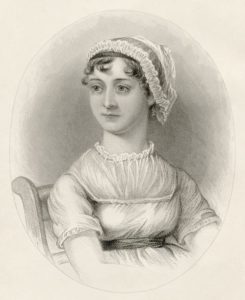
Jane Austen (1775-1817) was an English novelist born in Hampshire, England. Lauded for her keen wit, strident social commentary, and literary charisma, she is considered one of the greatest writers in the English language. Though her novels span many themes, they are broadly devoted to the trials and tribulations faced by middle-class women on the marriage market.
Austen’s focus on the challenges and prospects Georgian women had to contend with was ground-breaking for its time and is of particular interest to modern readers.
Subjects like economic precarity, familial expectations, the limits of female education, and the pre-eminence of marriage are threaded throughout her novels.
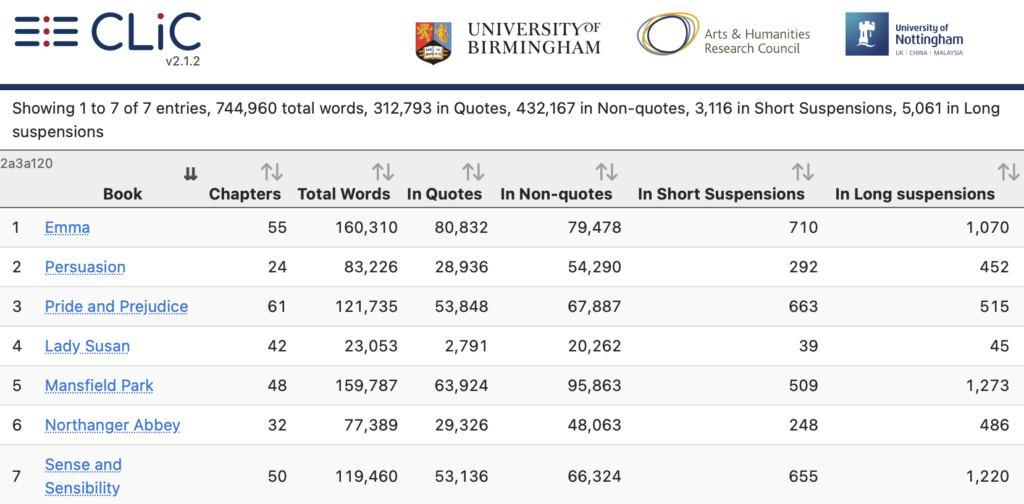
Jane Austen Keyword Guide
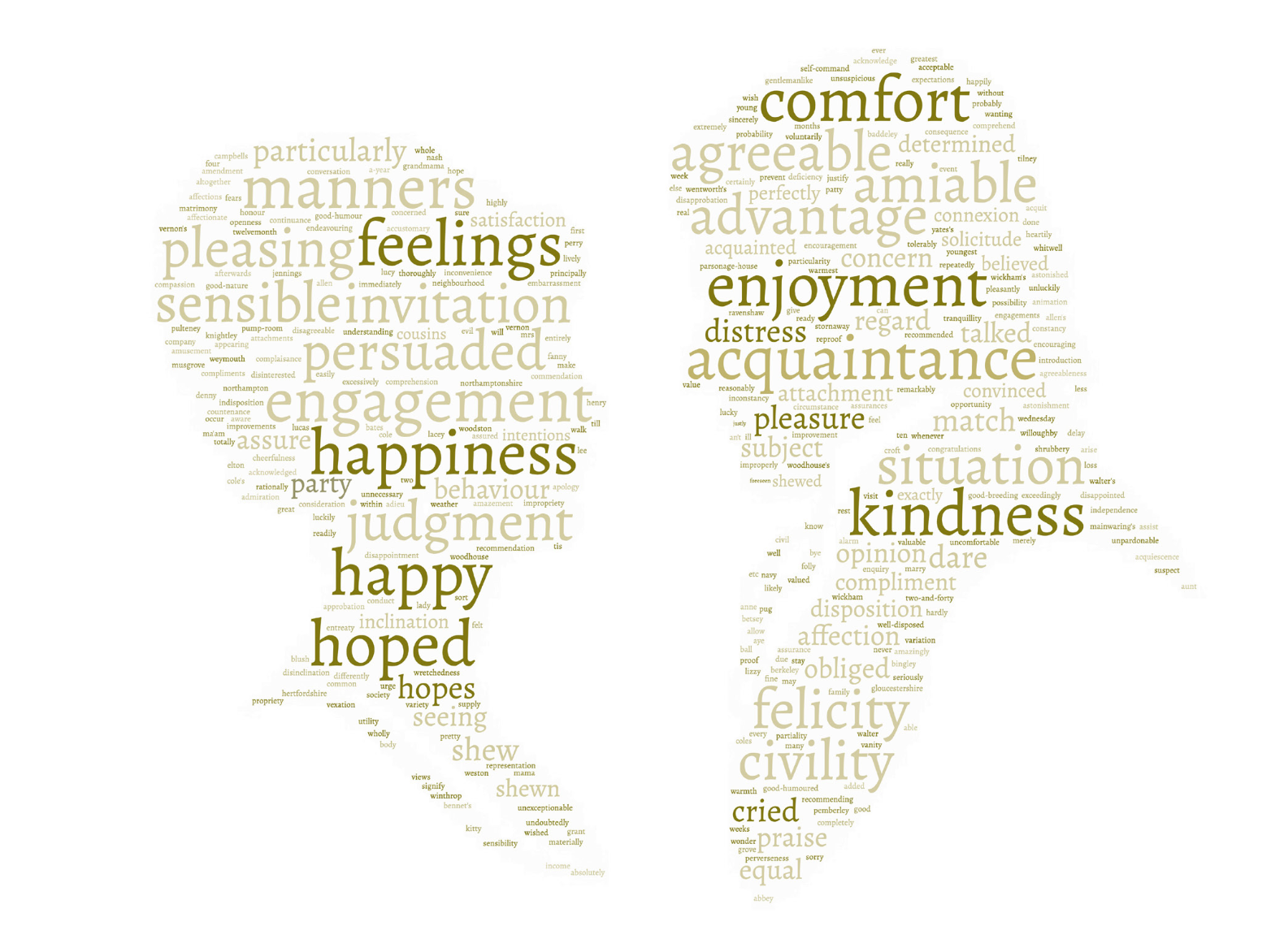
The ‘keywords‘ tool finds words (and phrases) that are used significantly more often in one corpus compared to another. You can find the full list of keywords in our Austen corpus (generated using our 19thC reference corpus, excluding Austen’s texts) here. If you want to learn how to run keywords yourself, please see the keywords section of our CLiC user guide.
The following paragraphs provide a hyperlinked sample of these keywords, grouped according to theme. If you click on a word, you can run a concordance search for it across Jane Austen’s works.
Once you have selected a keyword you can use the ‘filter rows‘ option or the ‘KWICGrouper‘ to tease out or highlight any patterns you come across. Why not print-screen your findings and send them to us on Twitter under the hashtag #CLiCCreative, or by tagging us @CLiC_fiction?
Keywords Related to Emotion:
feelings, happiness, happy, pleasure, hope, comfort, hoped, kindness, cried, enjoyment, distress.
What can you learn about the modes of emotional expression expected of or encouraged by wider society in the Georgian era? What kind of social etiquette dictates the management of these emotions? How do characters understand their own emotions? Equally, how do they define or evaluate the emotions of others?
Take note of the ways in which these words are used. ‘Cried’, for example, is generally used by Austen to indicate a surplus of emotions.
Interestingly, ‘happiness’ is often used in reference to the future rather than the present or past. Collocates of the term include — promise, probability, future, again, near, possibility, would, arise, foresee and hope. For many of Austen’s characters, marriage figures as an all-powerful determinant in their pursuit of happiness.
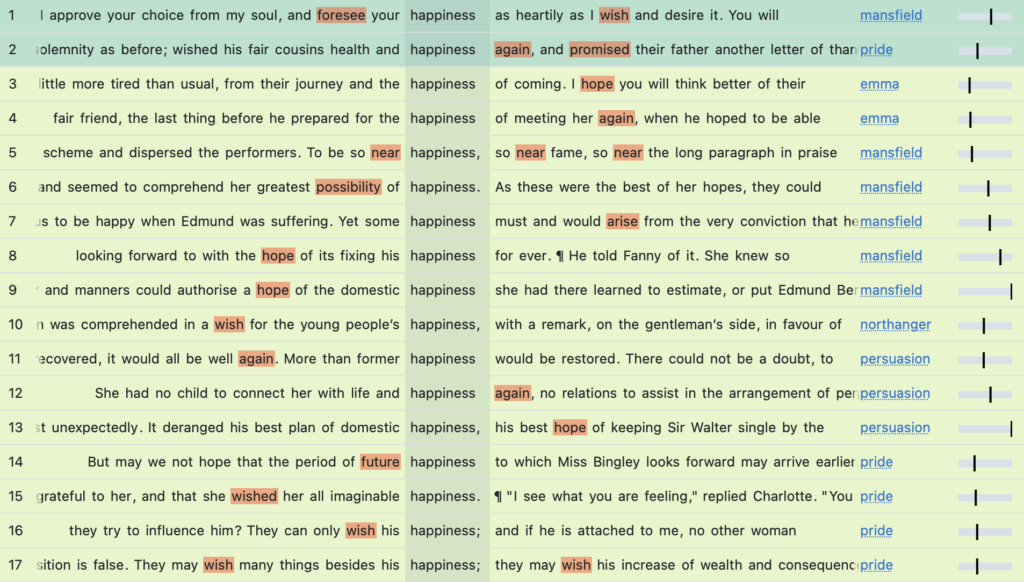
Keywords Related to Etiquette and High Society:
acquaintance, party, assure, behaviour, manners, agreeable, opinion, equal, situation, subject, talked, praise, concern, regard, civility,* persuaded, amiable, seeing, sensible, advantage, felicity, attention, dance, ball, visit, pleasing, judgment, invitation, disposition, compliment, solicitude, acquainted, connexion.
What can you learn about the differing social rules and etiquette expected of men and women during this time? Note, for example, how the descriptor ‘agreeable’ typically refers to men:

While ‘amiable’ more frequently describes women:

*If you want to read up on the subject of ‘civility’ in Pride & Prejudice you can take a look at : Mahlberg, M. & Smith, C. (2010) ‘Corpus approaches to prose fiction: civility and body language in Pride and Prejudice’. In B. Busse & D. McIntyre (eds.). Language and Style. Palgrave. (pp. 449-467)
Keywords Related to Romance and the Marriage Market:
attachment, affection, engagement, attentions, match, marriage, matrimony, wedding.
What does running a concordance search on these terms tell you about marriage in Austen’s time?
See, for example, the wide variety of adjectives that preface the word ‘match‘ (amazing, approved, bad, better, capital, degrading, desirable, eligible, equal, excellent, fair, fit, foolish, good, great, happy, improper, impudent, intended, pretty, proper, shocking, suitable, unhappy.)
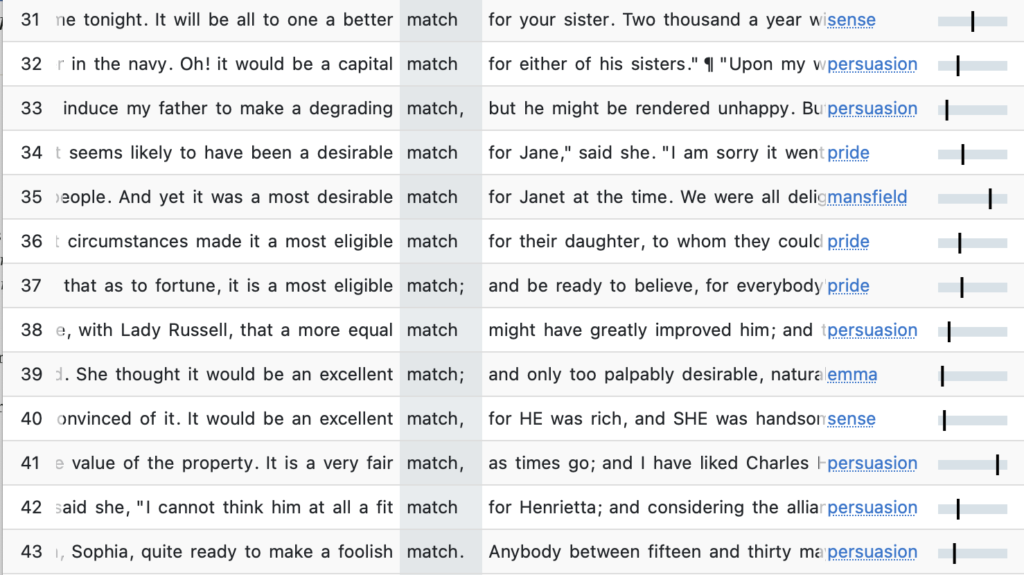
Do men and women express themselves differently when it comes to romance?
How might this inform how you approach marriage or romance in your own writing?
Keywords Related to Regency Patterns of Speech:
perfectly, believed, inclination, satisfaction, convinced, indeed, directly, certainly, dear, satisfied, quite, farther, convinced, particularly, shew, chuse, exceedingly, ought, entirely, shewn, shewed, exactly, determined, dare, obliged.
What can you learn about Georgian dialogue from running a concordance search on the above terms and examining the context in which they were used? How can this inform how you might use the term yourself?
See, for example, ‘dare’, which is nearly always used to soften the certainty of a statement or opinion (as in ‘I might have got it for less, I dare say’), or in conjunction with the word not (as in ‘I dare not hope’).

Can you detect differing patterns of speech according to a character’s gender, age, marital status, occupation or social class?
A full list of keywords in our Austen corpus (generated using our 19thC reference corpus, excluding Austen’s texts) is available here.
—–
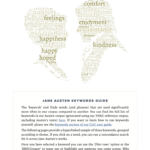 You can note down your findings in the handout provided, and, if you’d like, post them on Twitter under the hashtag #CLiCCreative, or by tagging us @CLiC_fiction.
You can note down your findings in the handout provided, and, if you’d like, post them on Twitter under the hashtag #CLiCCreative, or by tagging us @CLiC_fiction.

Join the discussion
0 people are already talking about this, why not let us know what you think?